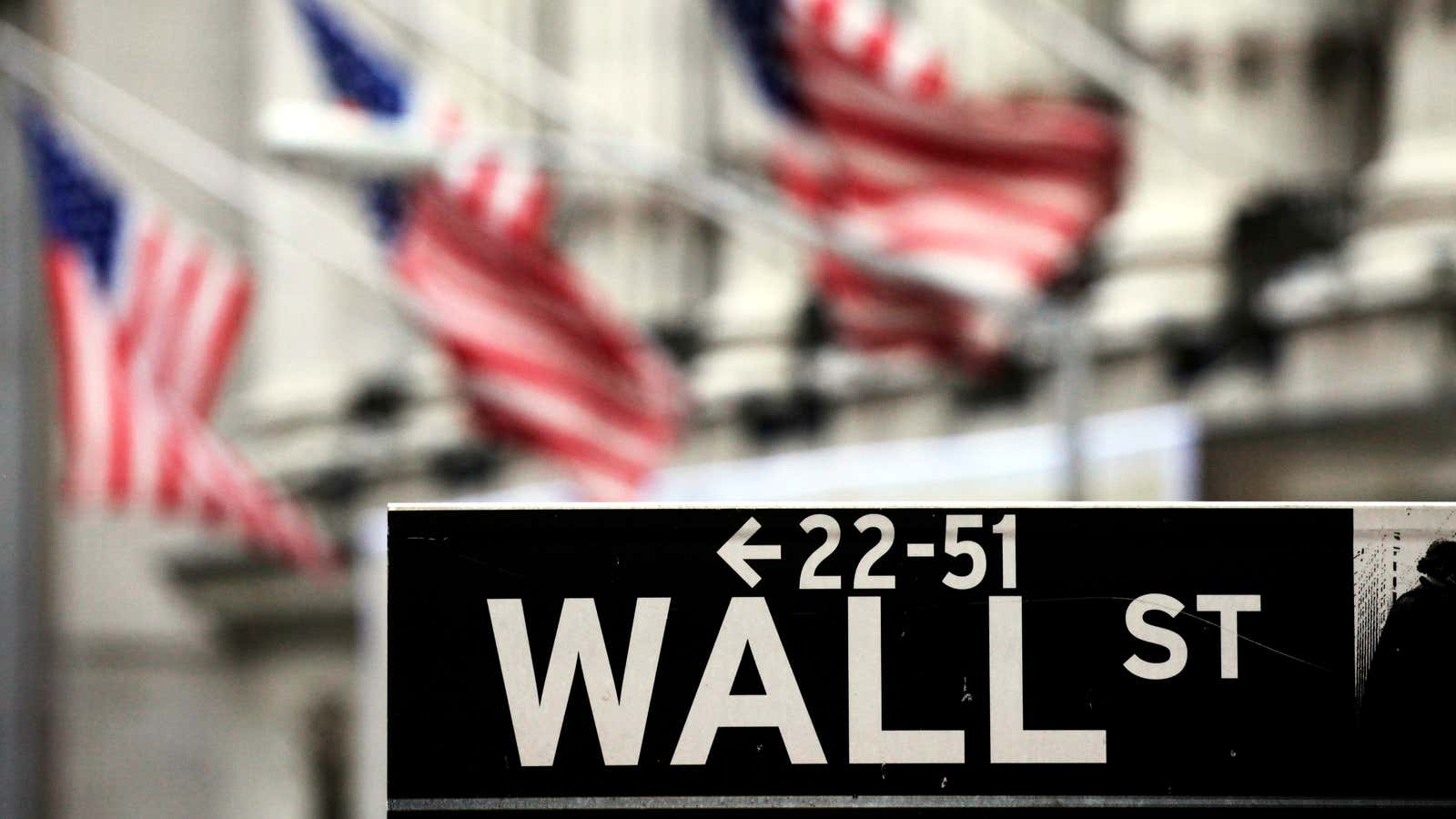Jay Clayton, a prolific Wall Street attorney, has been tapped by US president-elect Donald Trump to chair the Securities and Exchange Commission, which is charged with protecting investors from fraud.
Clayton, a partner at Sullivan & Cromwell, boasts a career encompassing some of the largest capital-markets transactions in recent years, from the $25 billion US public stock offering of the Chinese internet firm Alibaba to British Airways’ acquisition of Iberia Air. He was also a player in the emergency response to the 2008 financial crisis, working on the fire-sale of investment bank Bear Stearns to JPMorgan Chase, on Barclays’ purchase of a failing Lehman Brothers, and on a last-second capital raise for Goldman Sachs.
No one should be surprised that ostensibly populist Donald Trump has put a top Wall Street lawyer in charge of policing financial sector behavior—it fits the pattern of financial industry veterans being tapped for key roles. What’s noteworthy is that Clayton is the first high-powered Wall Street attorney to lead the SEC since 2002.
Other presidents, even Wall Street-friendly ones, have balked at appointing attorneys who have represented or done business with major investment firms, instead tapping government officials, industry regulators, or even accountants.
Barack Obama, who has appointed two SEC chairs since taking office amidst the crisis, first tapped Mary Schapiro, a long-time financial industry regulator, and then Mary Jo White, a former federal prosecutor. Neither earned major plaudits for her work, but both guided the SEC through its post-financial crisis transformation as more bank supervision powers were transferred to the Federal Reserve.
George W. Bush’s final appointee, Chris Cox, was a long-time congressman who had authored securities law legislation; before him, Bush tapped William Donaldson, then the CEO of insurer Aetna, with a long career behind him as a corporate executive.
The most instructive comparison for Clayton may be Harvey Pitt, Bush’s first SEC chair. Pitt was considered a superlative securities lawyer who represented banks and individuals facing SEC enforcement action. He resigned in disgrace, though, after clashing with the White House and with his fellow SEC commissioners over plans for a new accounting industry oversight board. In the wake of major accounting frauds at Enron and WorldCom, Pitt’s choice to lead the new oversight board was the former head of the audit committee at US Technologies, which itself had been accused of fraud and was under criminal investigation. Pitt was roundly criticized for being too close to the accounting industry, which he represented while in private practice.
Clayton appears to be more of a deal-maker than a securities lawyer, though his official biography notes some work on behalf of clients facing inquiries from government regulators, including the SEC.
Debates over the appropriate personnel to regulate financial markets have raged since the 2008 crash. Many on the left argue that regulators should not have close ties to the industries they supervise. But the need for expertise to understand capital markets and their participants has made it difficult to find qualified appointees without any background in the sector.
The SEC was created in the 1930s, in the wake of the Great Depression. Its first chairman was Joseph P. Kennedy, himself an avid stock speculator. Is a “fox to guard the henhouse” still what’s needed? Or is a remove from the industry essential to do the job right?
These questions, underlined by the financial crisis and Clayton’s direct experience with the Wall Street mega-deals that followed, will animate what is sure to be a contentious confirmation hearing.
